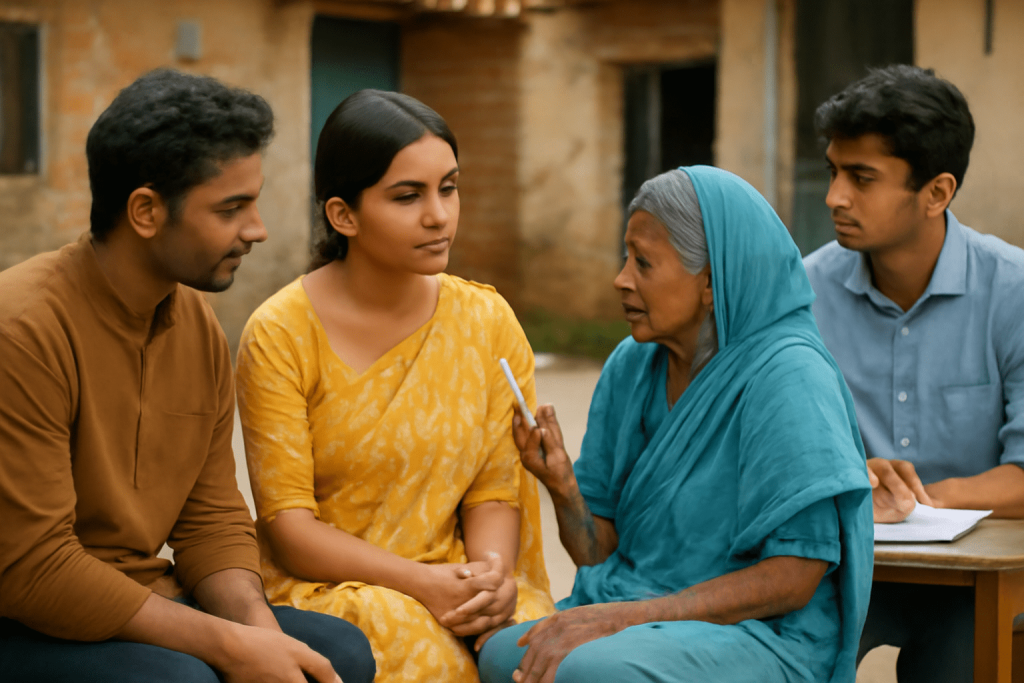In the dynamic world of India’s social sector, achieving success goes beyond the basic desire to make a difference. It requires a combination of hard skills and essential soft skills. We present you with a listicle that breaks down these crucial soft skills and provides you with a checklist for mastering them.
1. The Power of Teamwork
Collaboration is the cornerstone of success in India’s social sector. Unlike the corporate world, where solo endeavors are common, here, teamwork is non-negotiable. But it’s not just about working together; it’s about working effectively together. In a sector where diverse stakeholders come together, the ability to collaborate, communicate, actively listen, and understand various viewpoints is essential. It’s teamwork, but with a social twist.
- Effective Communication
In the social sector, being able to communicate clearly is pivotal. Effective communication ensures that your message is understood, reducing the risk of project roadblocks. - Empathetic Engagement
Empathy is key in understanding the perspectives of the people you serve. It allows you to connect on a deeper level, which is often vital for effective social impact
2. Critical Thinking: Unraveling Complex Challenges
In the complex web of India’s social sector, critical thinking is your compass. Many of the issues tackled in this field are interconnected and interdependent. To succeed, you must think critically, examining problems from multiple perspectives and using data, evidence, and accounts to arrive at holistic solutions. Critical thinking allows you to view situations neutrally and make well-informed decisions, an invaluable skill for NGOs and the development sector.
- Problem-Solving Prowess
Critical thinking enables you to identify problems and develop creative solutions, a skill that is indispensable in tackling complex social issues. - Data-Driven Decision-Making
Making decisions based on reliable data ensures that your efforts are focused on strategies that are more likely to succeed.
3. Networking: Building Bridges for Change
Networking isn’t just a buzzword; it’s a superpower in the social sector. It opens doors to knowledge exchange, collaboration, and new opportunities. In India’s vast and diverse landscape, professionals often work on similar issues in different regions. Networking bridges these geographical gaps, enabling the sharing of ideas and mutually beneficial conclusions.
- Knowledge Sharing
Networking allows you to tap into the collective wisdom of your peers, helping you discover innovative approaches and best practices. - Partnerships and Alliances
Building a network of partners can expand your resources and enhance your capacity to drive meaningful change.
4. Thriving Under Pressure
The social sector in India often deals with sensitive issues and an overwhelming workload. But with the right approach, you can thrive under pressure. Social Purpose Organizations (SPOs) often provide a supportive community that helps mitigate the stress associated with job demands. Additionally, you can employ various stress management techniques to ensure you remain effective and resilient, no matter how challenging the circumstances may be.
- Stress-Reduction Strategies
Learning to manage stress through techniques like mindfulness and time management can significantly improve your performance. - Supportive Work Environment
Being part of an organization that values work-life balance and offers support can be a game-changer for professionals in the social sector.
5. Willingness to Learn and Unlearn
The ability to learn and unlearn is the secret sauce of success in India’s social sector. Learning new skills and concepts empowers you to adapt to evolving circumstances and excel in your role. But equally important is unlearning – the process of letting go of outdated or incorrect ideas. In this dynamic field, you may encounter concepts that challenge your existing beliefs. Embracing unlearning and relearning is crucial for staying adaptable and effective.
- Continuous Professional Development
A commitment to ongoing learning ensures that you remain relevant in a field that constantly evolves. - Adapting to Change
Embracing new ideas and approaches can lead to groundbreaking innovations and solutions.
6. Cultivating Empathy
Empathy is a soft skill that can’t be overlooked in the social sector. Understanding and sharing the feelings of those you serve is at the heart of creating meaningful change. Empathy allows you to connect with the people you aim to assist on a deeper level and truly make a difference.
- Client-Centered Approaches
An empathetic approach helps you tailor your services to the unique needs and experiences of your clients. - Building Trust
Demonstrating empathy fosters trust, which is essential in a sector where trust can be the difference between success and failure.
In the realm of India’s social sector, success is not solely about good intentions; it’s about mastering the essential soft skills. This checklist of soft skills—teamwork, communication, critical thinking, networking, thriving under pressure, a willingness to learn and unlearn, and cultivating empathy—is your roadmap to making a profound impact. Embrace these skills, and you’ll be well on your way to becoming a changemaker in India’s social sector. Whether you’re just starting your career in the social sector or seeking to enhance your current role, this checklist will guide you toward the success you desire.
What are the soft skills for social workers?
- Soft skills for social workers include teamwork, effective communication, critical thinking, networking, ability to work under pressure, and a willingness to learn and unlearn. These skills are crucial for success in the social sector in the social sector, where collaboration, empathy, and adaptability are paramount.
What skills do you need to work in the development sector?
- To excel in the development sector, a combination of hard skills (project management, fundraising) and soft skills (teamwork, communication, critical thinking) is essential for effective development management and leadership.
How do I start a career in social work?
- Acquiring a blend of hard and soft skills is key to starting a social work career. ISDM’s Post Graduate Program in Development Management offers a comprehensive curriculum and practical learning experiences, fostering essential skills for success in the field. More details at ISDM’s Program.




